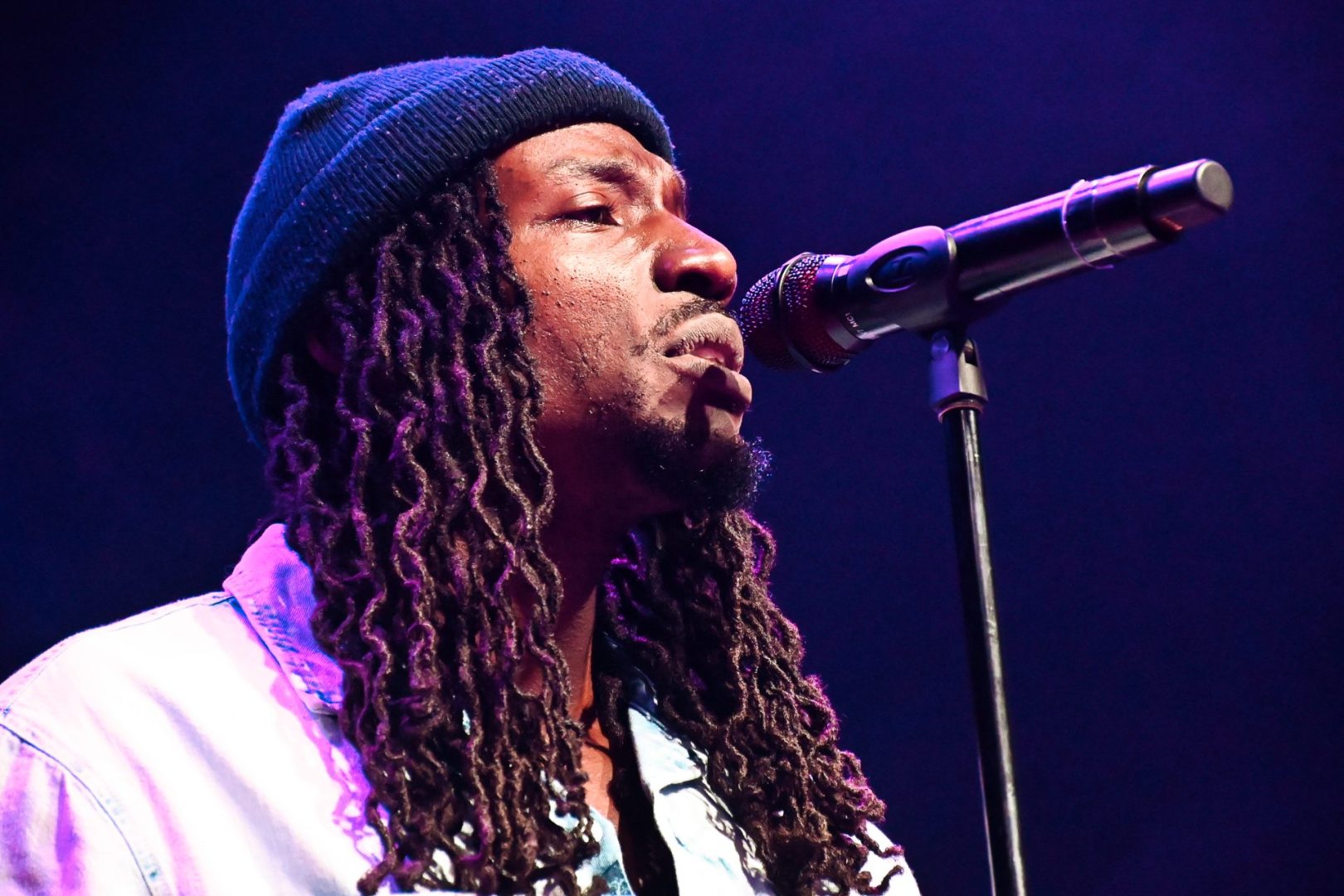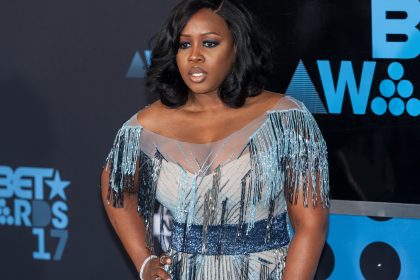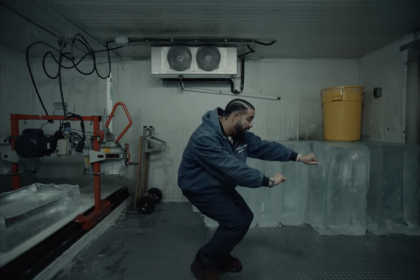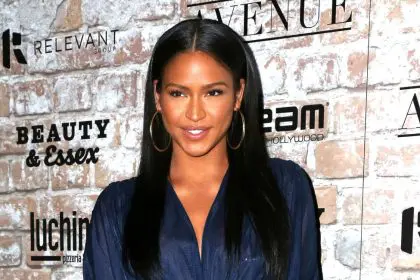Davion Farris, a Grammy and ASCAP Award-winning R&B singer-songwriter from Inglewood, California, has carved out a distinctive niche with his introspective, soulful ballads that explore interpersonal relationships with remarkable emotional depth. The eldest brother of acclaimed artists SiR and D Smoke, Farris earned his Grammy for his contribution to Lucky Daye’s “Falling in Love” and has seen his music featured across major television networks, including his singles “Sometimes” and “Make Love” on Showtime’s “The Chi” and his work on BET’s “Twenties.” Beyond his solo career, Farris has established himself as a sought-after collaborator, writing with and for industry heavyweights including Mary J. Blige, Tyrese, Trey Songz, Ginuwine, Jill Scott and SiR, cementing his reputation as both a compelling vocalist and gifted songwriter in contemporary R&B.
You won a Grammy for your work on Lucky Daye’s “Table for Two,” and you’ve written for artists like Mary J. Blige and Tyrese. How do you balance your successful songwriting career with developing your artistry as a solo performer?
At first, I didn’t have a great balance with that, and I focused more on the opportunities that came with writing with Mary, Tyrese and all of those artists, but now I’m getting better at finding that balance. You know, a few years ago, I had the opportunity to work with Lena Waithe on the joint venture she had with Hillmangrad and Def Jam, and even now, I sing background and write for my brother SiR. We just finished the tour, which was a wonderful, fantastic experience. I opened up in some cities, and my uncle Andrew Gouché played bass for the duration of the tour. But now I find balance because I love both outlets for the experiences they provide, like the artistic outlet of writing. It’s therapeutic, and then, obviously, being an artist singing and being able to sing for people is my greatest joy.
Your recent single, “Bad Guy,” is a powerful testament to your introspective style. Could you share with us the personal experiences or emotions that inspired this track? How do you approach writing such vulnerable, emotionally mature content?
I was told long ago that you’ll never run out of things to write about as long as you write life. So, I draw upon my own experiences. I might draw upon stories I’ve heard from others or something I see in a post, or it could be anything. As long as it’s real-life experience, that’s core to being able to write from an honest, vulnerable place that people will connect with.
Your 2017 track “Make Love” showcases the intimate, soulful sound that has become your signature style. How do you balance vulnerability with artistry when creating such personal songs, and what do you hope listeners take away from this particular track?
I had a lot of fun with that track because the whole thing is a double entendre. I talk about how we can only make love, and we can only do it if we’re naked. Still, on the surface, it has a sensual tone. Still, it’s talking about bearing it all emotionally and being naked in front of each other. It’s talking about real vulnerability, and even when I say make love, it’s as if we’re creating this love. So that’s one of my favorite songs.
You come from an incredibly musical family — your brothers are SiR and D Smoke, your mother is Jackie Gouché-Farris, and your cousin is five-time Grammy nominee Tiffany Gouché. How has growing up in this musical dynasty shaped your artistic identity and approach to music?
So, growing up in a family that’s so ingrained in music shaped all of us in a way that made us appreciate music, art and skill. We understand the difference between talent and skill, and talent deserves its respect, but on top of that, skill is a thing you want to develop. It pushed us to develop the skills because everybody was talented. If you wanted to stand out, if you wanted to progress, if you wanted to carry on the legacy that was left by my mother and my uncles and my grandmother, then we knew that we couldn’t just depend on our talents and that we had to grow as songwriters and producers and musicians and singers. It’s amazing collaborating with them because we grew up in the same household or with Tiffany and Jason. Our experiences still lead us to be our personalities, characters and creatives. So when we come together, it’s dope to see that we all do it at a high level but our way. I love collaborating with each one of them for different things. For SiR, he’s, I mean, they’re all dynamic creatives, so let me say that first off, but SiR, his lyricism and originality and the fresh work. I love that from him. Tiffany is gonna give you some jazz and melodic work. Her harmonies will be very original, and I’ll say left of center but in the dopest way. Smoke is always gonna give you that real music. Smoke is gonna give you a real honest and introspective. If there’s any space for him to do so, but he also does it in a dope way, that’s him. I love collaborating with them.
You were signed with Lena Waithe’s Hillman Grad Records. How did this partnership with Hillman Grad happen?
That was dope because I was working with a good friend named Big Tank and doing sync records. So, he does placements for film and TV, and he was working with Lena. He had played a few songs and mentioned “Make Love” cause that song got Lena’s attention. After a few weeks, he texted me, saying I’ve got an opportunity for you. Lena loves “Make Love,” she asked me who this is. What’s going on with the song? How can I be involved? So she wants to get on the phone with you. She had just gotten into a situation with Def Jam, so I got a phone call a few days later, and she repeated what Big Tank said. She’s in a situation with Def Jam. She loves the song. She loves the perspective and wants to know what I’m doing with the music, how she can be involved and how she can help. And literally a few months later I was signed to Hillmangrad/Def Jam.
Your music is described as recounting “interpersonal situations with emotional maturity.” What life experiences have taught you to approach relationships and conflicts with this level of emotional intelligence?
There were situations in which I lost meaningful relationships because I wasn’t emotionally intelligent enough to process what I was feeling and communicate effectively in a way that might allow me and my significant other to recover from whatever hardships we were going through. I was forced to mature in that way because I am not a masochist. I do not enjoy having my heart broken or breaking hearts or being involved in any heartbreak. So, to not repeat my mistakes, I had to learn which ones I was making and work on those.
Inglewood has been central to your identity as an artist. How has your hometown influenced your music, and what does representing your community mean to you as your profile continues to rise?
Inglewood, you know, is the hub of the West Coast right next to LA. But we have established our own identity culturally. In Inglewood, you have to be a real person. You have to stand alone; you know what they say 10 toes down. You have to be a man of your word. So, if you’re faulty in a way, your credibility is hard to move about. That kind of character development shows up in the music and, again, in the maturity and honesty of the records.
You’ve written for major R&B acts while maintaining your artistic vision. How do you adapt your songwriting style for different artists while staying true to your introspective, soulful approach?
The talent in writing for other artists is just understanding their perspective. It could be conversing with them if they are present in the session or going on their social and seeing what they are talking about. If they have done interviews or just figuring out what it is they want to talk about. Once you have a theme of what they want to discuss, you understand there’s nothing new under the sun. What experience they wish to discuss is a subject that I’ve probably heard about or know about. That experience leans toward the writing process because it makes it easier to understand whatever the artist’s story they’re trying to communicate.
Your music has been featured in shows like “The Chi” and “Twenties.” How important is visual storytelling and television sync placement in reaching new audiences, especially for R&B artists today?
It’s one of the better outlets. Many of my fans came directly from those shows and placements. They said, “Oh, I heard your song.” There are songs that I haven’t even released that were placed on the show that people are still clamoring over. So, it’s one of the better outlets if you have that connection.
Is there acting in the future?
I’m working on things. I’m developing a show, so I’m excited about that and open to acting. I taught for Tasha Smith Acting Workshop under Tasha Smith for a year when they started offering online classes when the pandemic hit, so I’ve got experience in that, and I’m looking to make some more action happen with it.
How do you plan to build on your Grammy success and songwriting achievements to establish yourself as a leading voice in contemporary R&B, and what themes do you want to explore in your upcoming projects?
I am independent now, so I’m working on releasing a song a month for the rest of the year, and upon the third single, I’ll be releasing an actual project. So, that’s one of my main focuses. There are many songwriting opportunities I am working on with Chris Brown, Kevin Gates, Trevor Jackson and others. I have 22 songs a long list to choose from. I could drop an EP and an album from that if I wanted, but the focus right now is the EP and being consistent with my releases so that my fans can expect music from me. There’s gonna be a tour, I feel like, after I release my project in September.















